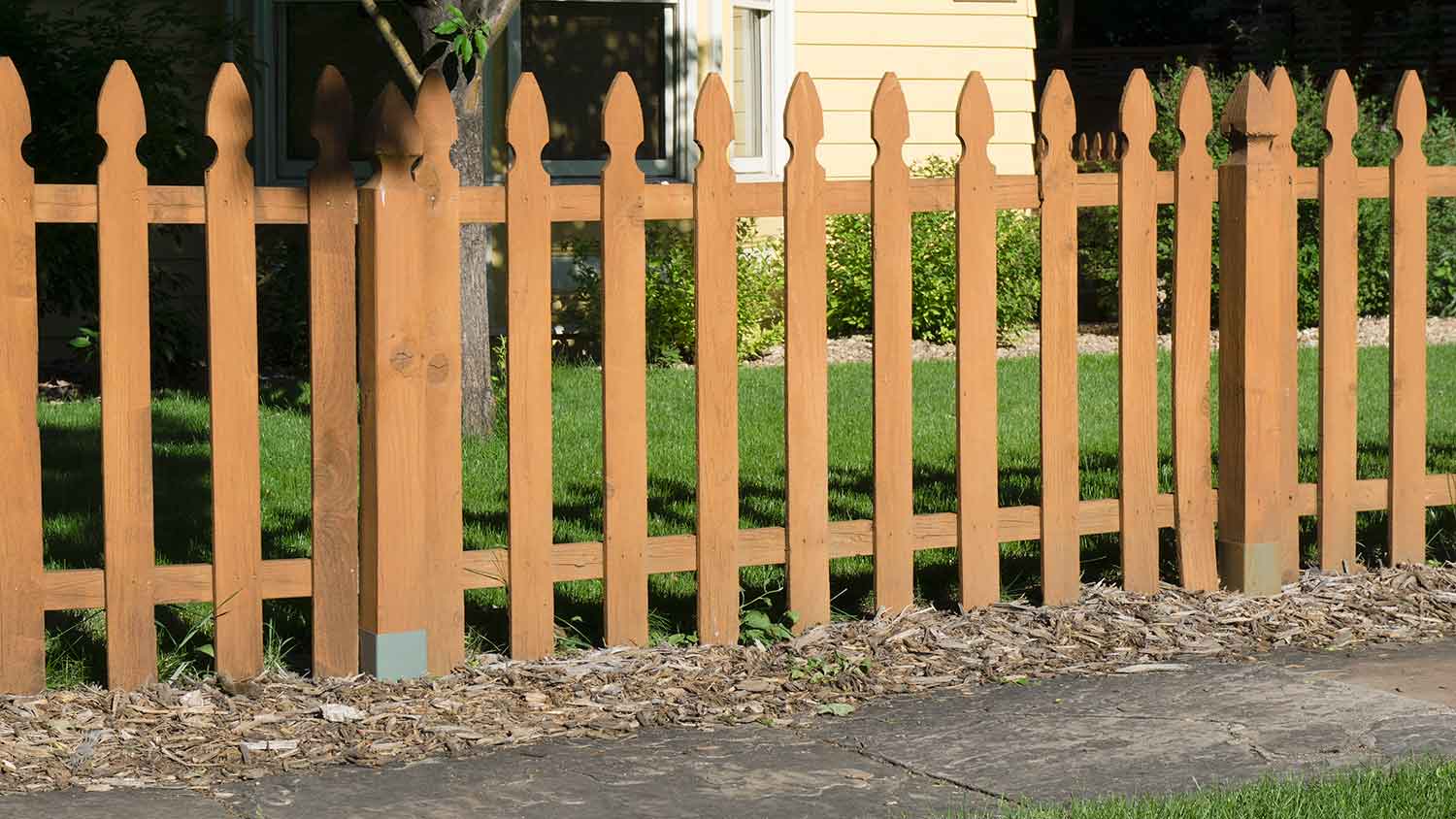6 Tips for Choosing the Best Fence for Your Yard
Doing your research before choosing and installing a fence will benefit your yard, family, and lifestyle


Fences can offer privacy, security, and good looks. Plus, they offer a safe space for your family and pets to run around freely. There are several types of fences, and each has unique qualities worth considering. Before choosing the one that’s right for you, do some research.
1. Understand Your Needs

There are several reasons you may be considering installing a fence in your yard. It could be for good looks, privacy concerns, keeping pesky deer out of your garden, or providing a safe area for your kids and dogs to play. Installed well, fences may even increase your property value.
Take a moment to think about the reason for your fence, and let that be your signpost as you determine what type of fence works best for you. Some materials work better than others—wood is great for privacy, for example, whereas ornamental metal is not.
2. Set a Budget
Fencing materials have vastly different costs. Before you call a local fence retailer, sit down at your computer and set a budget. First, consider the size of your yard and calculate how much fencing you need. With this number, you can then compare and contrast the cost of different materials to determine a total budget, which can be either a solid number or a range.
The average cost for a professionally installed fence is $2,800, ranging from $400 to $9,200, according to HomeAdvisor. Installing a fence typically costs $13 to $50 per linear foot, including professional installation. Factors including the size and type of fence as well as your yard’s slope can affect these numbers.
If you decide to buy your own materials, you’ll just pay for labor. Fence installation labor generally costs $30 to $80 per hour, depending on who and where you hire. The average fence measures about 200 linear feet, which will take a professional about 35 hours to complete. In that case, you’ll pay between $1,050 and $2,800 for labor.
3. Consider Different Materials
Common fencing materials include wood, aluminum, vinyl, wrought iron, and chain-link. Each material has pros and cons.
Wood
Wood fencing is a popular choice that’s great for privacy and containment, but it does require regular re-staining or painting to keep it looking great.
Pros
Offers privacy
Affordable
Classic look
Cons
Requires maintenance
Relatively short lifespan (10–20 years)
Aluminum
While aluminum fences are not ideal for maintaining privacy, they are totally functional. They can keep kids and pets where they’re supposed to be while keeping out intruders and the best part is they hardly require any maintenance.
Pros
Secure
Low maintenance
Cons
Low privacy
Vinyl

Because vinyl requires little maintenance and can stand up to physical blows, it’s an excellent option for fencing material. Although vinyl costs more than other fencing materials, it has low maintenance costs—a simple, occasional spray with the hose will keep it looking new throughout its lifetime.
Pros
Low maintenance
Durable
Comes in an array of styles and colors
Cons
High upfront costs
Can warp or crack in extreme temperatures
Wrought Iron
If you’ve ever admired the beautiful historic homes of the South, like the ones in New Orleans, you’ve likely seen a wrought iron fence. These unique and classy fences offer plenty of style, but they cost significantly more than wood and chain-link fences.
Pros
Looks nice
Durable
Low maintenance
Cons
Expensive
Prone to rust
Chain-link
Chain-link fences are the classic budget-friendly fence often seen around schoolyards and public playgrounds. If you aren’t concerned with privacy or high security (intruders can usually climb over it), chain-link is an excellent, affordable fence material.
Pros
Affordable
Easy to install
Cons
Low security
Low privacy
4. Check With Your HOA
If you have a homeowner’s association (HOA) setting the rules in your neighborhood, you may not have full control over what type of fence you install. Check with your HOA to find out if the fence you want meets their standards for materials and height.
5. Find Your Property Line
Before you build your fence, make sure you know your exact property line. If the fence is not in the correct spot, neighbors could lobby to have it removed down the line. You can do this yourself by consulting your deed (if it came with those exact measurements) or hire a surveyor to find it for you. If a professional installs your fence, ask the company if they provide this service.
6. Hire the Right Professional
Fencing your yard yourself is hard work. Plus, it requires specific tools. If you don’t have carpentry skills and plenty of time on your hands, consider hiring a professional. Check their licensing status beforehand to determine if they’re qualified to do the job.





- 11 Types of Fences for Added Privacy in Your Yard
- Everything You Need to Know About Privacy Fences
- 16 Excellent Privacy Fence Ideas for Your Outdoor Space
- How Long Does It Take to Build a Fence on Your Property?
- The Best Low-Maintenance Fence Options for Your Home
- 8 Best Fences for Dogs: Pros and Cons of Every Option
- 30 Front Yard Fence Ideas to Welcome You Home
- How Long Does a Vinyl Fence Last?
- How to Make a Fence Taller for Privacy: 5 Simple Ways
- 8 Types of Metal Fences for Yards, Pools, and More










